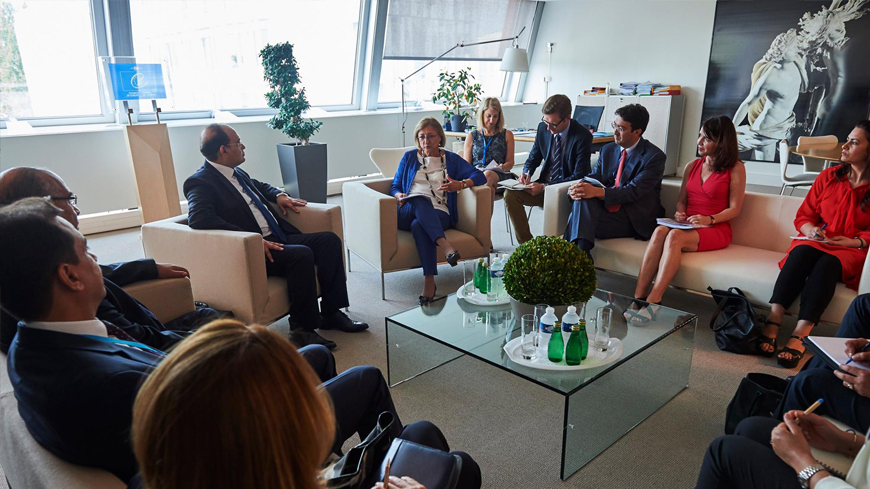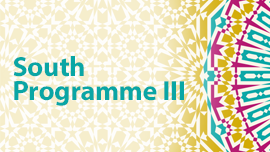تونس
The main objective of the cooperation between Tunisia and the Council of Europe, in line with the Council of Europe’s policy towards its neighbouring regions, is to assist Tunisia in the process of democratic changes underway by helping the country to tackle challenges related to human rights, the rule of law and democracy.

The Deputy Secretary General of the Council of Europe with high level representatives of Tunisia during an exchange of views with GRECO members, 22 June 2017, Strasbourg
Since the launch of the Neighbourhood Cooperation Priorities in 2012 and the Neighbourhood Partnership in 2015, the political dialogue and technical cooperation with Tunisia have evolved to become more refined while also yielding remarkable outcomes. In the field of human rights, for example, cooperation has made it possible to address most of the issues that were identified as priorities, such as combating violence against women, children’s rights, and the prevention of torture. Tunisia’s invitation to accede to the Convention on the protection of children against sexual exploitation and sexual abuse (Lanzarote Convention) together with Tunisia’s several requests to adhere to Council of Europe instruments show the country’s commitment to harmonising its legal frameworks with international standards.
Under the Neighbourhood Partnership with Tunisia (2018-2021), adopted by the Committee of Ministers in March 2018, the Council of Europe will:
- Consolidate the achievements of the cooperation implemented since 2012 and expand cooperation to new areas, in line with national reform priorities, based on demand and in the field of Council of Europe expertise;
- Continue the creation of a common legal area between Europe and Tunisia;
- Provide support to the effective implementation of new legislation following European and other international standards;
- Provide support to the setting up and the effective functioning of human rights institutions and new governance structures; paying particular attention to the independent bodies created since 2011 and provided for in the 2014 Constitution;
- Consolidate Tunisia’s presence in Council of Europe’s instances of which it is already a member or observer (European Commission for Democracy through Law (Venice Commission), European Centre for Global Interdependence and Solidarity of the Council of Europe (NorthSouth Centre), European Commission for the Efficiency of Justice (CEPEJ), Co-operation network on drugs and drug abuse in the Mediterranean region (MedNET)) and to encourage it to participate in other Council of Europe structures, according to needs.
The main financial instruments used to implement this Neighbourhood Partnership are the South Programme III and the voluntary contributions of Council of Europe various member States.

